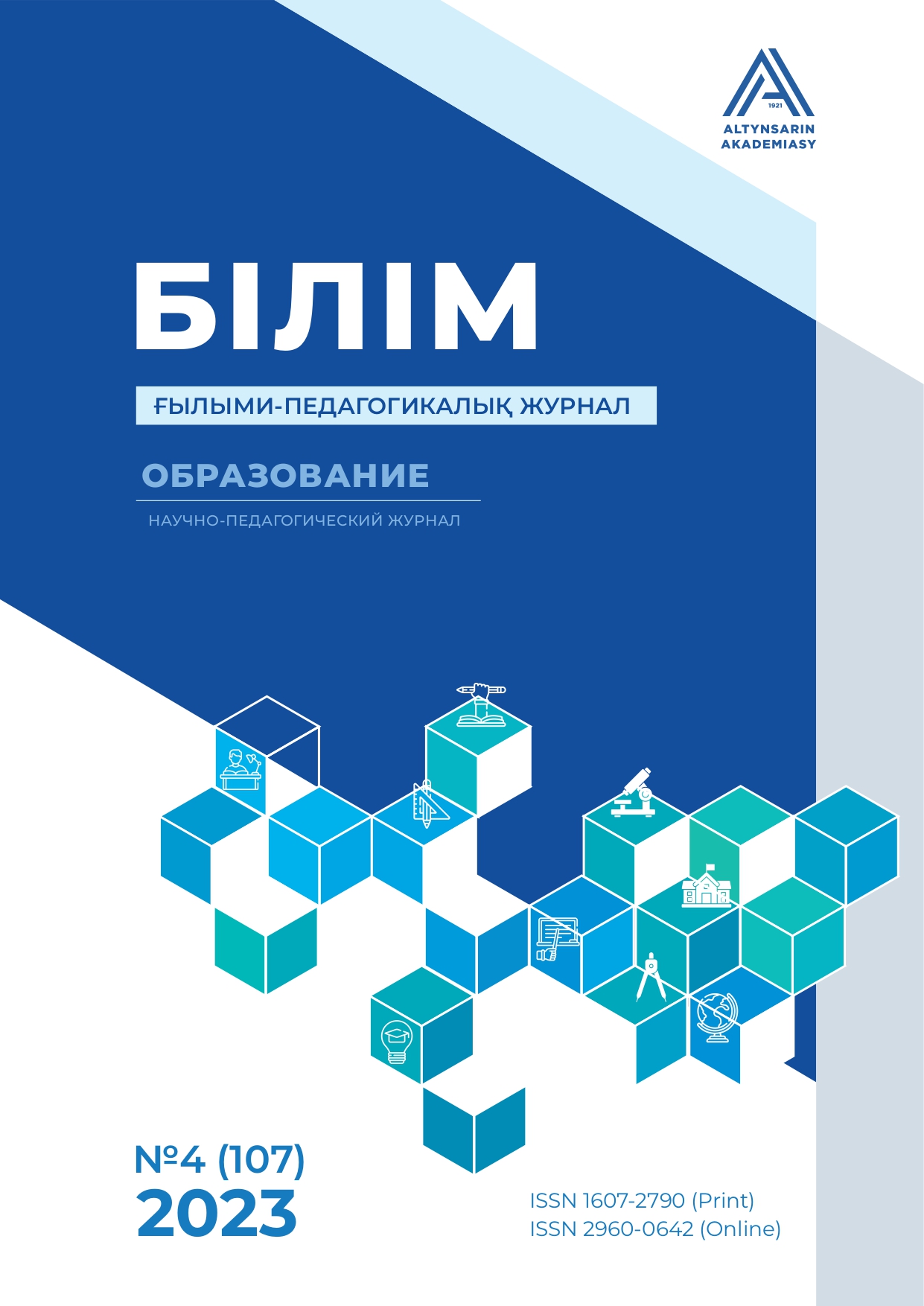О развитии инклюзивной образовательной политики в Казахстане
DOI:
https://doi.org/10.59941/2960-0642-2023-4-142-152Ключевые слова:
инклюзивная политика, инклюзивное образование, особые образовательные потребности, психолого-педагогическое сопровождениеАннотация
В данной статье авторы раскрывают результаты исследования инклюзивной образовательной политики на основе исследования соответствия законодательной базы страны индикаторам инклюзии, принятым в международном сообществе, а также исследования критериев Национальной образовательной базы данных по вопросам инклюзивного образования. В работе использованы такие методы, как изучение научно-методической литературы, нормативных правовых документов, анализ статистических данных, методы структурного и факторного анализа, синтеза, сравнительного анализа и обобщения результатов исследования. Авторы подтверждают актуальность положения Саламанской декларации о принципах, политике и практической деятельности в сфере образования лиц с особыми потребностями о том, что политика инклюзии декларирует необходимость изменения общества и его институтов таким образом, чтобы они благоприятствовали включению в социум любого человека. Также они приходят к заключению, что для принятия решений по указанным проблемам требуются глубокие фундаментальные исследования в области создания инклюзивной образовательной среды во всех организациях образования, независимо от их вида, типа и уровня. На основе результатов исследования авторами сформулированы выводы и предложения по решению насущных вопросов развития инклюзивной образовательной политики государства.
 ҚАЗ
ҚАЗ РУС
РУС ENG
ENG
